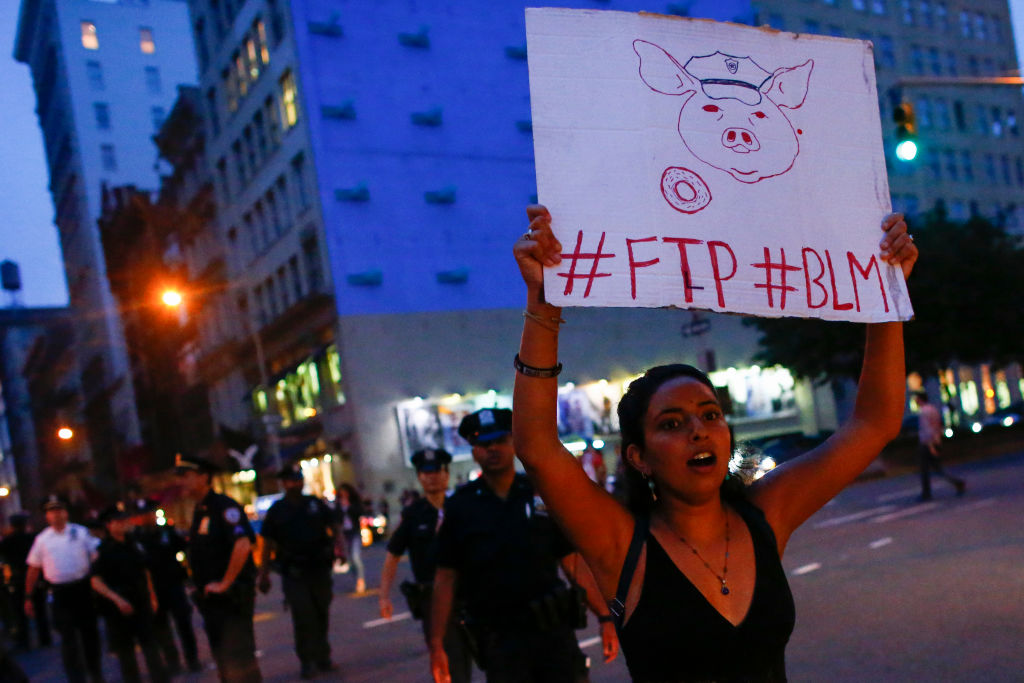Dear fellow citizens,
In the wake of the horrifying and brutal killing of George Floyd, many in the UK expressed heartfelt solidarity; widespread protests showed a genuine commitment to opposing racism. Since then, however, activists, corporations and institutions seem to have seized the opportunity to exploit Floyd’s death to promote an ideological agenda that threatens to undermine British race relations.
The power of this ideology lies in the fear it inspires in those who would otherwise speak out, whatever their ethnicity. But speak out we must. We must oppose and expose the racial division being sown in the name of anti-racism.
The consequences of this toxic, racialised agenda are counter-productive and serious. We are all being divided by tactics and narratives many of us know to be untrue:
- By splitting society into black lives or white lives, racial identity is being used to define who we all are and how we should fight injustice, as opposed to building a united movement to improve life for everyone.
- Those who favour the identity-based politics of grievance and academic critical race theory are redefining racism. The achievements of civil rights movements in the past – that effected positive material impacts on the lives of ethnic minorities and increased equal treatment – are now being denied and undermined by those who claim racism is on the rise.
- Demands that millions of people accept uncritically a prescriptive ‘white privilege’ agenda or be dubbed ignorant, racist or in denial is creating new tensions.
- Under soulless acronyms such as BAME and POC, all ethnic minorities are robbed of individual agency, and assumed to be victims of injustice.
- Free speech is being eroded by a McCarthyite culture of conformity in which to question the new dogma means to risk one’s livelihood and reputation.
- Calls for the wholesale destruction of historical statues, symbols and works of art are fuelling an unhealthy war against the past and stirring up culture wars in the present.
- An obsessive focus on the impact of colonialism threatens to turn history into a morality tale, rather than a complex, three-dimensional understanding of the past.
- The common conflation of the issue of race in the US with the UK (in relation to criminal justice, for example) is unhelpful as it makes it difficult to discuss our specific historical circumstances and the contemporary challenges we face.
We are committed to supporting open-minded, fact-based investigation into the roots of our many social problems but reject simplistic explanations that reduce all injustice to racial factors.
We are dismayed at the moral cowardice of political and cultural institutions that refuse to speak out in defence of tolerant citizens who are being targeted as though their skin colour is synonymous with ‘unconscious’ bigotry.
We oppose the notion of collective guilt, and support the goals of those who have struggled to ensure that individuals are judged by the content of the character and not the colour of their skin.
We reject the proposition that the UK is inherently racist in 2020, with racial prejudice embedded into our educational, cultural and legal institutions. We salute the struggles of earlier generations of civil rights activists and the progress they made in defeating racist discrimination and attitudes.
We want a genuine movement to fight for equality of treatment. Where racism exists, it should be unapologetically challenged. We oppose those ideologues who seek to irrevocably damage our society by hijacking this important cause. We also oppose the opportunistic far right groups who are already exploiting this new climate of fear and disunity.
We will not be divided – by reactionary racists or culture warriors – who refuse to see us as individuals beyond our skin colour.
We call on people to share their insights and experiences (@DontDivideUsNow on Twitter and Instagram) and join us in challenging these regressive trends.
email team@dontdivideus.com
- Janella Ajeigbe, headteacher
- Katharine Birbalsingh, headteacher
- Ben Cobley, author, The Tribe
- William Clouston, party leader, The Social Democratic Party
- Andrew Doyle, writer; comedian
- Dr Rakib Ehsan, research fellow, HJS
- Simon Evans, comedian
- Dr Ashley Frawley, sociologist
- Inaya Folarin Iman, writer; free speech activist
- Francis Foster, comedian
- Claire Fox, director, Academy of Ideas
- Tarjinder Gill, teacher; All In Britain
- Manick Govinda, independent arts consultant
- Ben Habib, businessman; co-founder, Unlocked; former MEP
- Courtney Hamilton, writer
- Ash Hirani, South East Hindu Association
- Ed Husain, author The House of Islam: A Global History
- Ike Ijeh, architect; writer
- Christina Jordan, former MEP, South West England
- Esther K, YouTuber; author, Graduating into adulthood
- Lesley Katon, campaigner; creative & communications director
- Kamsha Khan, student journalist
- Vishal Khatri, aviation professional
- Konstantin Kisin, comedian
- Dr. Kulvinder Singh Manik, GP
- Mercy Muroki, political commentator; student
- Patsy Murrell, project manager
- Masimba Musodza, writer
- Sarah Peace, artist
- Bhimji Pindoria, president, South East Hindu Association
- Helen Pluckrose, editor-in-chief, Areo
- Calvin Robinson, school leader; teacher
- Dr Alka Sehgal Cuthbert, educator; writer
- Elizabeth Smith, writer
- Professor Doug Stokes, director, Centre for Advanced International Studies
- Zuby, musician; rapper; podcast host; author






Comments